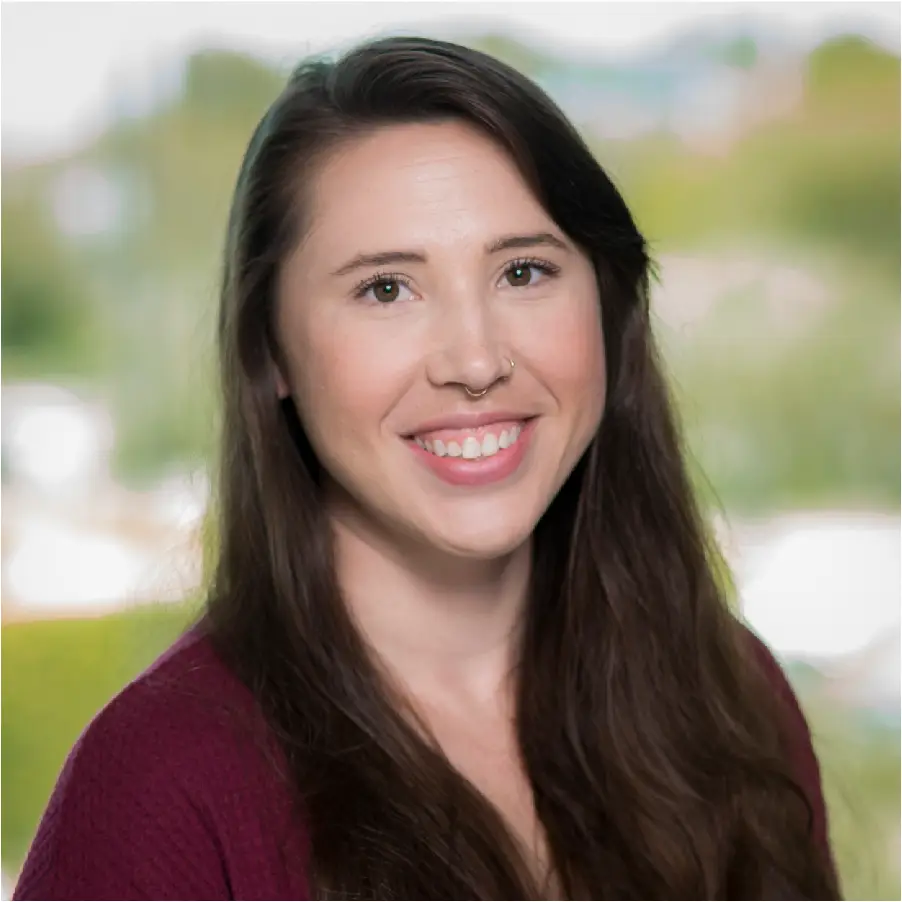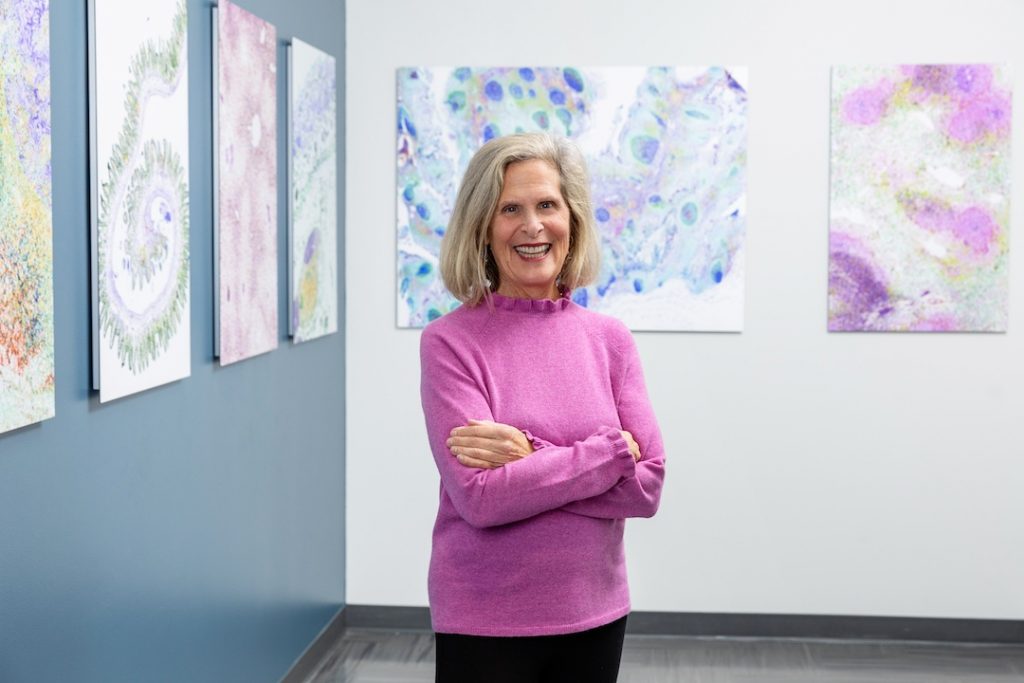Hannah Dose knows way too much about her coworkers’ saliva. For more than two years, Dose and her colleagues in the La Jolla Institute for Immunology (LJI) Next Generation Sequencing Core, led by Director Suzie Alarcón, have run the OASIS program, a rapid, saliva-based COVID-19 testing protocol. Dose serves as the Core’s Associate Manager.
The LJI team built the OASIS system from the ground up in early 2020, and it has proven incredibly reliable. In fact, their protocol is so accurate, fast, and inexpensive that the group won a $500,000 XPRIZE in 2021. This summer, Dose won one of 10 XPRIZE-funded fellowships for the OC program, a conference held in the Dominican Republic to bring together experts equipped to address global poverty and injustice.
We asked Dose a few questions about her upcoming trip and how the pandemic has shaped her career:
Question: Next gen sequencing is a fairly new tool in the sciences. How did you get started in the field?
Hannah Dose: I earned a bachelor’s in molecular biosciences and biotechnology at the University of Hawaii. I actually had a big interest in plant science and I was doing CRISPR on basil plants for resistance to certain microbes. So when I moved here to San Diego, I really just fell in love with the idea of working with DNA. I was also interested in genetic engineering.
When the opportunity came up to work at LJI, I was just really excited because I felt like I could kind of use what I knew about genetic engineering.
Q: How did your job change as COVID-19 spread in 2020?
Dose: I was pretty new here at the time and I didn’t really think that something that I could be doing in the lab would directly impact people that I work with every day.
When COVID hit, it was kind of like, okay, we’re shut down. Steve Wilson [Institute COO at the time] was like, ‘Well, we’ve got to do something about this.’ I mean, we’re an immunology institute. Shutting down really wasn’t an option. We had important work to do.
Being part of the Institute’s COVID-19 testing effort and feeling like, wow, we can actually make it so that when employees do come back to work, they feel safe—that was so important to me. It was very, very cool to be able to be a person who makes people feel safe coming back to work.
Q: What has it been like to watch the XPRIZE-related testing project evolve?
Dose: That’s just been amazing. The whole point of the XPRIZE for the COVID-19 Rapid Testing Competition was to create a way to level inequalities in different communities around the world that had limited access to regular testing. To address disparities there, the goal for rapid COVID testing was to develop faster, cheaper and easier-to-use COVID testing methods that could be done at scale and deployed to communities that did not have access to testing or equal access to testing.
Q: Have scientists outside the United States gone on to use the LJI protocols?
Yes, our protocol is freely available to anyone, and we also worked on a collaborative project with Dr. Sujan Shresta to connect with scientists in Nepal. Nepal was going through a time where the only testing they had was the intrusive nasal swab, and they were extremely low on the amount of tests that they even had to give out. It was a really huge problem.
With our winnings from the XPRIZE, we were able to not only donate reagents and kit components to complete our protocol, but we actually trained a whole team at Kathmandu University via Zoom—on an eight-hour Zoom call—step by step how to do our protocol, how to run the testing, and how to make it perfect.
We were also able to secure COVID sequencing kits for them. So not only were they able to find cases, but they were able to detect breakthrough cases and just be part of the global conversation of COVID tracking and understanding.
Q: What was your reaction to finding out you got the fellowship?
Dose: I was very surprised. Honestly, everything with the XPRIZE has been surprising, and then it just keeps going. I feel honored to just be part of a collaborative movement like this.
Q: What are you looking forward to on your trip to the Dominican Republic?
Dose: I’m looking forward to collaborating with interdisciplinary members there. They’re a global network of leaders that are dedicated to building sustainable solutions to poverty and injustice, and so the whole purpose of this is to really just swap ideas and find ways how how we’re in a unique position here, even at LJI, to make a difference in fighting inequalities and other global efforts toward addressing poverty.
There are people there in health technology, social justice journalism, and even environmental initiatives. So it’ll be really cool to see just different perspectives from people in different groups and think like, okay, so how can I work that into what I do to make a difference too?
Q: After an intense few years, what is your impression of LJI?
Dose: I love it. I love the big collaborative efforts here at LJI and the culture here.




